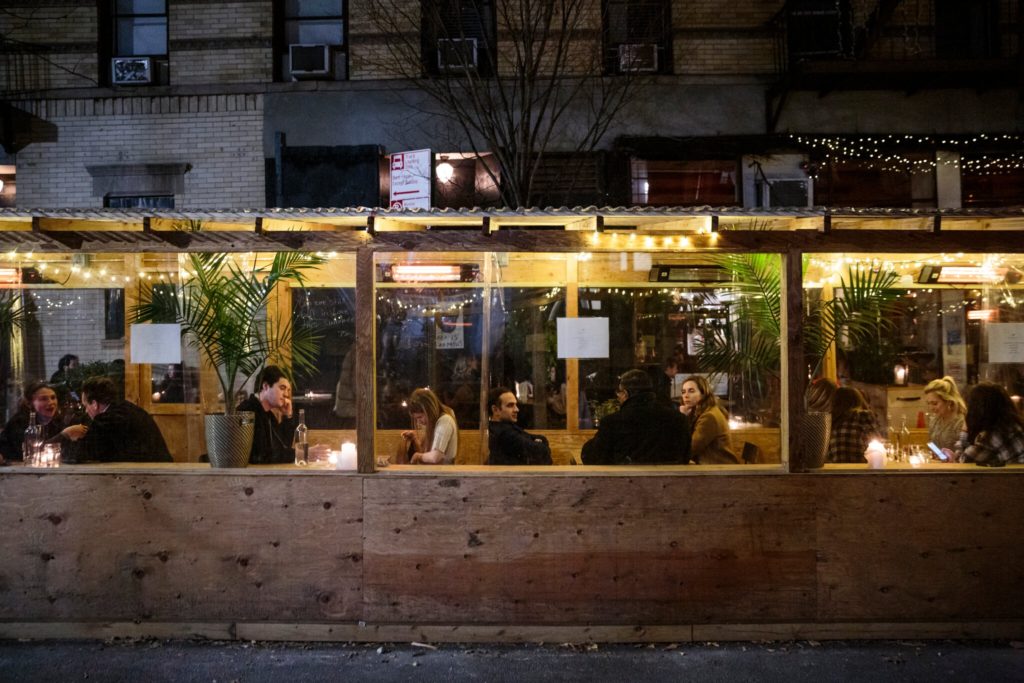
Photo courtesy of Sarah Blesener for The New York Times
In the midst of a flurry of outdoor dining constructions and eased restrictions, one facet of the hospitality industry has been pushed aside: accessibility. Disabled users have long struggled to navigate the streets of New York as they face uneven sidewalks, short crossing lights, and car-blocked crosswalks. Additionally, restaurants have a history of neglecting, or loosely adhering to, Title III ADA guidelines which has made dining a potentially dangerous experience as well. Now, however, the addition of outdoor dining areas has exacerbated these difficulties even further. The Open Restaurants program has done a relatively good job sustaining accessibility requirements since restaurants must adhere to those set out by the ADA, however they are still largely unmet. Restaurants are prioritizing asphalt and parking spaces over accessibility and it shows.
The lack of ramps, room for wheelchair seating, and eight-foot wide paths for pedestrians on the sidewalk is apparent on almost every street in the city. With sidewalks now lined with these dining areas, it’s become virtually impossible to safely navigate around obstacles. Many wheelchair users and individuals with mobility impairments have been left with no choice but to stay in for fear of having to traverse the inaccessible landscapes.
But those customers with disabilities, who represent about 61 million people or 25% of the U.S. population, represent a major market that has yet to be fully catered to. Restaurants would undoubtedly benefit from offering accessible dining spaces, and disabled customers would finally be able to safely partake. Some advocates have come up with creative ways to fight for accessibility, including revamping accessibility reviews or even making accessibility rankings similar to letter grades. Overall, however, an ideological shift is necessitated. Business owners must come to see ADA guidelines as a law, just as they saw Covid-19 guidelines, and not as suggestions or potential lawsuits.
Founded by attorneys Andreas Koutsoudakis and Michael Iakovou, KI Legal focuses on guiding companies and businesses throughout the entire legal spectrum as it relates to their business including day-to-day operations and compliance, litigation and transactional matters.
Connect with Andreas Koutsoudakis on LinkedIn.
Connect with Michael Iakovou on LinkedIn.
This information is the most up to date news available as of the date posted. Please be advised that any information posted on the KI Legal Blog or Social Channels is being supplied for informational purposes only and is subject to change at any time. For more information, and clarity surrounding your individual organization or current situation, contact a member of the KI Legal team, or fill out a new client intake form.
The post Accessible Outdoor Dining Needs to be Reviewed and Accurately Implemented appeared first on KI Legal.
